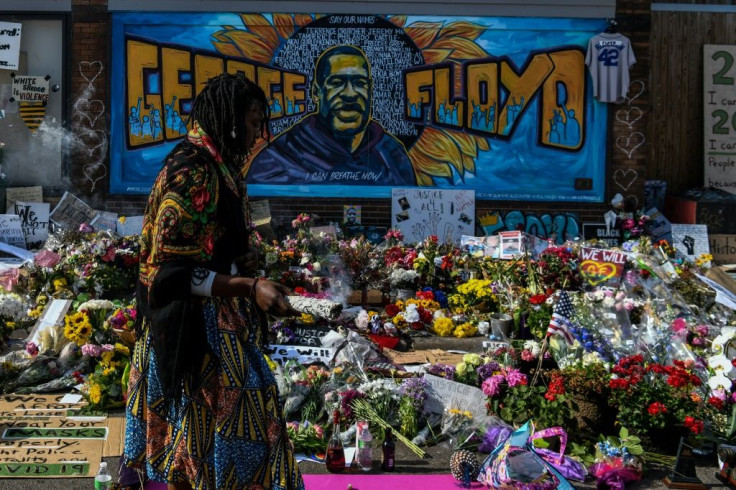George Floyd Update: Minneapolis Bans Police Chokeholds And Neck Restraints
KEY POINTS
- Minneapolis has banned the police from using chokeholds and neck restraints during arrests
- Mayor Jacob Frey is pushing for more reforms in the city's law enforcement in the coming weeks
- Chief of Police Medaria Arradondo welcomes the policy changes
Minneapolis officials voted on a resolution, Friday (June 5), effectively banning the police department from using chokeholds and neck restraint during an arrest. The ban also stipulates that officers may intervene if they see their colleagues using excessive force against people in custody.
City Council President Lisa Bender said, in a Twitter post, that they will commit to dismantling the local police department to "replace it with a transformative new model of public safety." The ban comes as the Minnesota Department of Human Rights sued the police department for George Floyd's death.
Minneapolis cops arrested Floyd on May 25 for, allegedly, using counterfeit money. During his arrest, Officer Derek Chauvin pinned Floyd on the pavement with his knee. Floyd pleaded that he couldn't breathe, but Chauvin kept him down while the other cops restrained the arrested man. Floyd was unresponsive after almost nine minutes and could no longer be revived by the emergency services called to the scene.
The incident was caught on video by bystanders and shared online. Floyd's death sparked a nationwide outrage that triggered widespread protests in the U.S and other parts of the globe. Chauvin and three other cops are now facing charges related to second-degree murder.
"This is a moment in time where we can totally change the way our police department operates," Mayor Jacob Frey said in a press conference after signing the ban on chokeholds. "Now, we can finally get this right, and so we’ve been propelled by this extraordinary energy and unprecedented recognition that we have to be on the precipice of change and that there are reforms that are generations past due."

Frey will be working with the City Council and the police department in the coming weeks to identify other areas where changes have to be made.
Additionally, the city will also require cops to receive authorization from the police chief, instead of a supervisor, in using tear gas and rubber bullets during protests and demonstrations. Body camera footage will have to be audited and reviewed regularly, not just when there's a complaint.
The new agreement comes as the city is set to negotiate a new agreement with the police union on or before July 30. Minneapolis Chief of Police Medaria Arradondo welcomes the reforms and policy changes.
"I will continue to work on efforts to improve public trust, public safety, and transformational culture change of the MPD," Arradondo said in a statement.
© Copyright IBTimes 2024. All rights reserved.





















